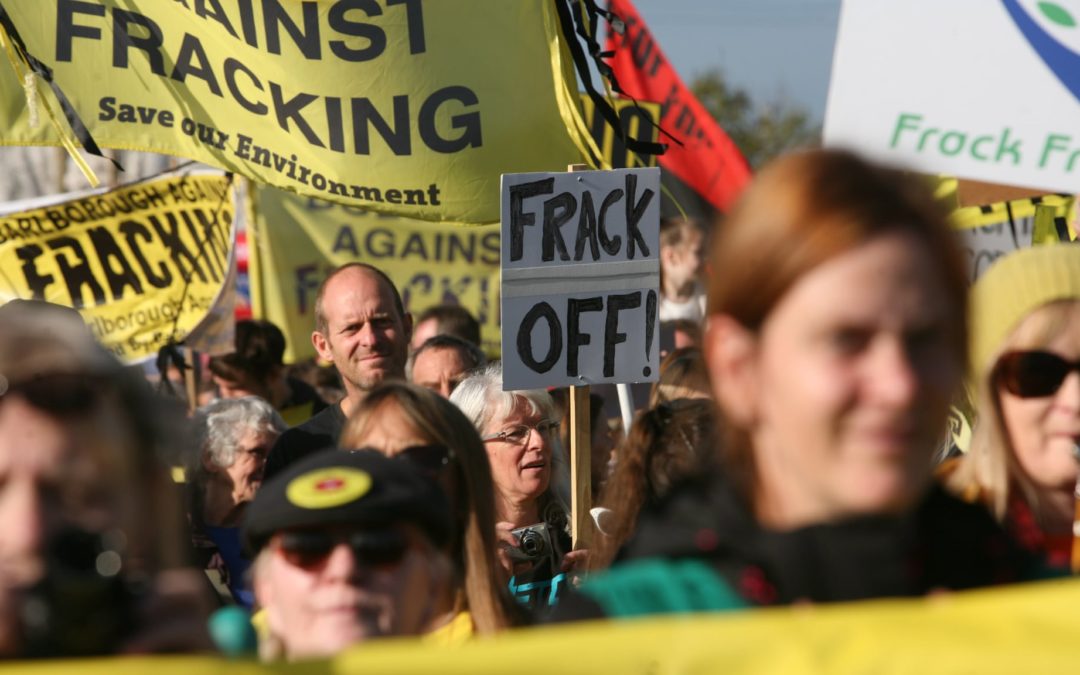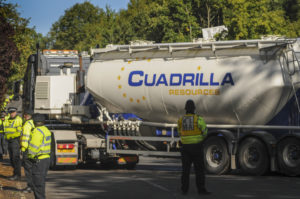From The Guardian
Launching a new fossil fuel industry was a bad idea, and a coalition of localists and environmentalists appears close to defeating it
Less than four months after what was supposed to be a new beginning for fracking in England, when Cuadrilla resumed operations at its Preston New Road site in Lancashire, it appears increasingly unlikely that there is a future for this industry in the UK at all. Minor earthquakes rapidly halted fracking at Preston New Road, and led to a row about whether the legal limit for underground seismic activity, set at 0.5-magnitude after earthquakes in 2011, is unrealistically low. Now Jim Ratcliffe, chairman of petrochemicals firm Ineos and the UK’s richest man, has launched his own attack both on the 0.5 limit and on the planning system that has seen all three of Ineos’s applications to frack rejected by local authorities – although two were later granted on appeal. The government’s refusal to change the law in the industry’s favour, he said, means that it is “shutting down shale by the backdoor”.
Having watched the success of the shale gas industry in the US since 2000, Mr Ratcliffe and politicians including former chancellor George Osborne decided that fracking – which involves pumping water, sand and chemicals 2km underground at high pressure – should become a UK industry too. Senior Conservatives including the current energy minister, Claire Perry, agreed. They were wrong. The UK is unsuited to fracking, for political and geological reasons that have become clearer over the past few years, and all the money (Ineos alone has spent £150m) and effort expended on trying to foist a new and dirty industry on communities who do not want it has been thrown away.
Fracking was always a bad idea, because of climate change. Cutting carbon emissions means reducing our reliance on fossil fuels. To develop a new gas industry is to do the opposite, and arguments that shale gas is needed to “bridge” a gap in energy supply when existing nuclear power stations are decommissioned, and before they are replaced, are largely spurious. The idea that the UK’s energy security is threatened is similarly unfounded. Unlike eastern European countries that rely on gas from Russia, our imported gas comes mostly from Norway. The government’s most recent assessment concluded that supplies are resilient. Dramatic recent falls in the cost of renewables have greatly strengthened the case against fracking, as well as providing one of the few glimmers of hope in a darkening global climate picture.
What happened, as the campaign against fracking gathered strength, is that the politics of energy and climate harmonised with local concerns around environment and democracy. In Lancashire, Derbyshire, West Sussex and South Yorkshire, activists mobilised because they didn’t want the traffic, disruption, minor earthquakes and pollution they feared fracking would bring, and didn’t regard the promised economic boost as sufficient compensation. Local politicians sided with them. A parallel situation played out in Scotland, where Ineos lost a case it brought against the Holyrood government last year. And while it remains possible that the UK government will try to alter the planning system so that fracking is allowed under “permitted development” rights, locking councils out of the process, the opposition of around 20 Conservative MPs makes is unlikely that any such law could pass.
Polls have consistently shown that fracking is unpopular. When three anti-fracking activists were freed from jail last year they were greeted with cheers. The public were ahead of the government in realising that giving up on this industry makes sense.


